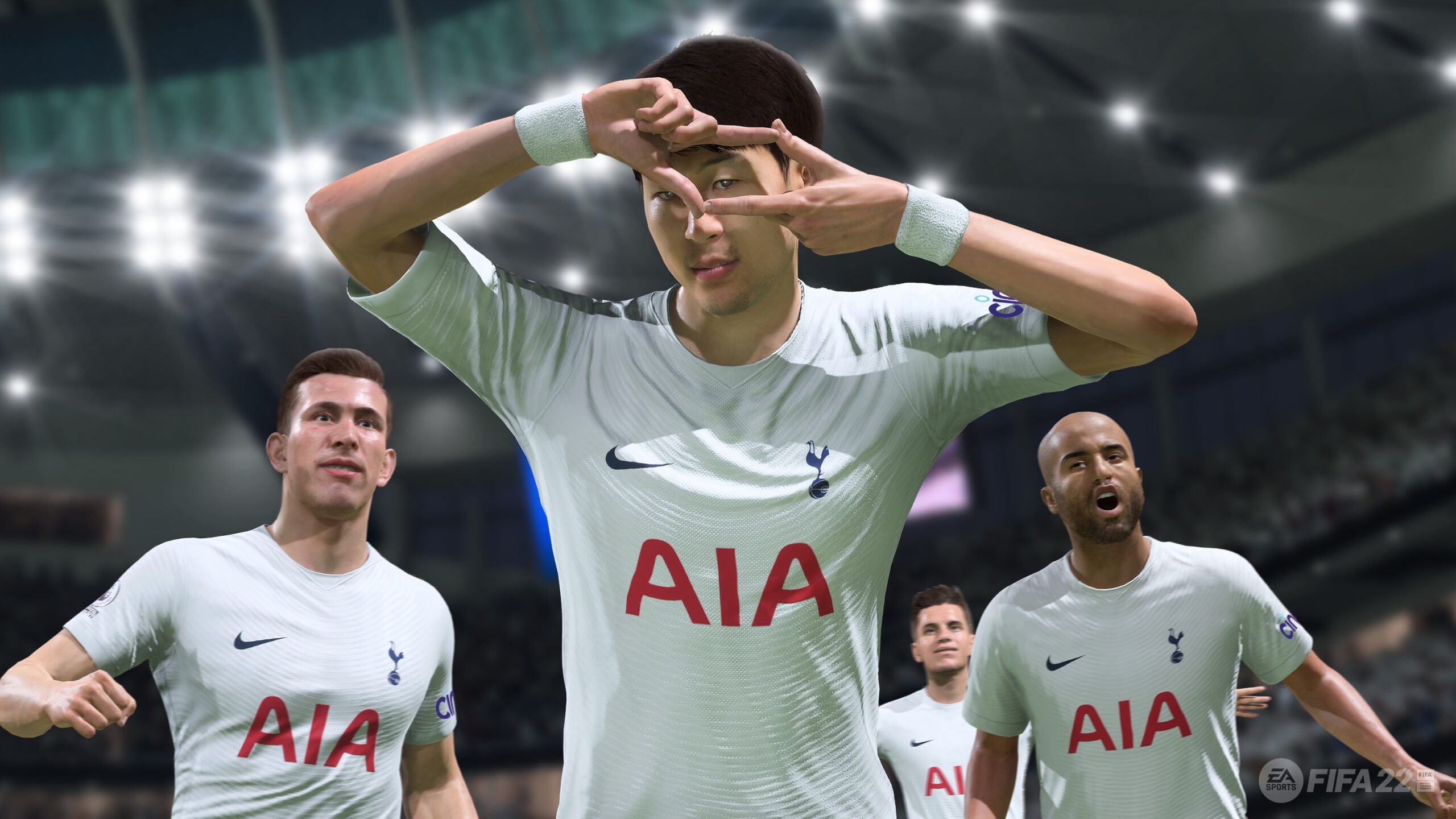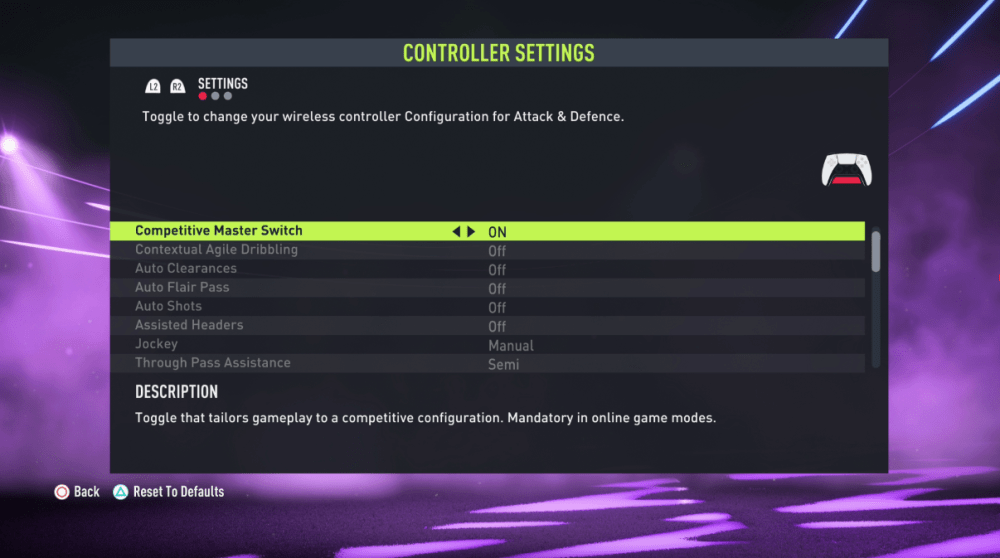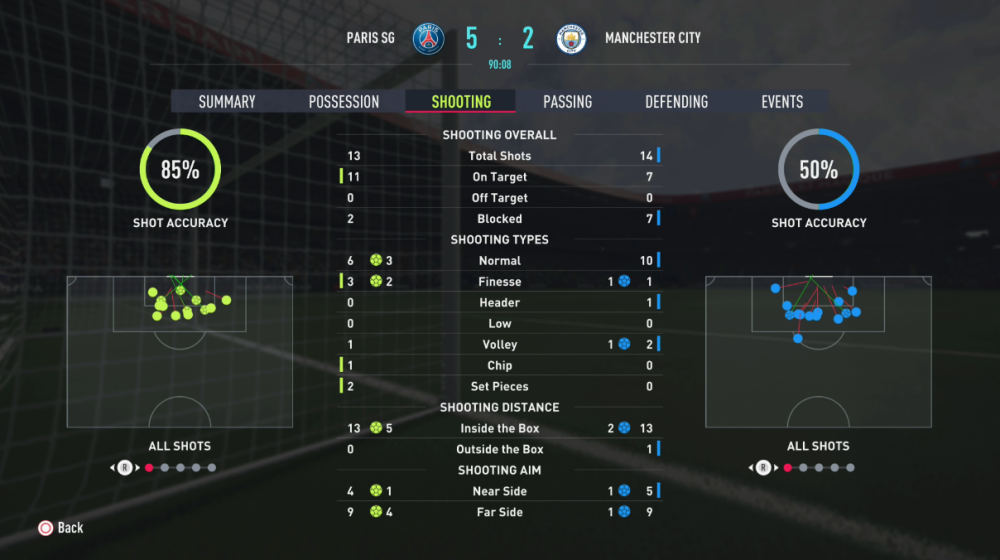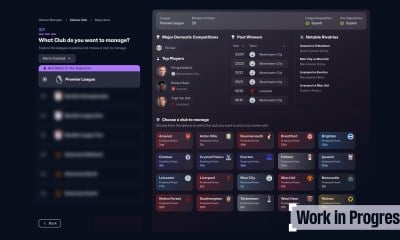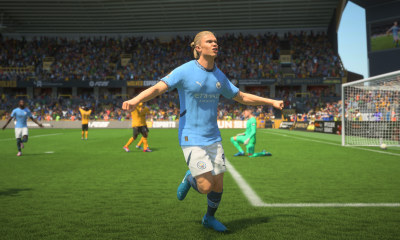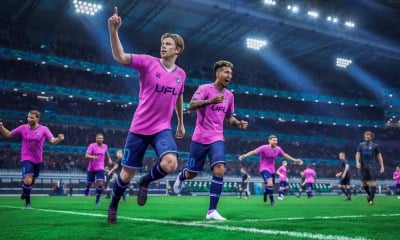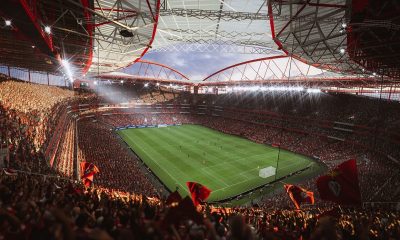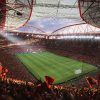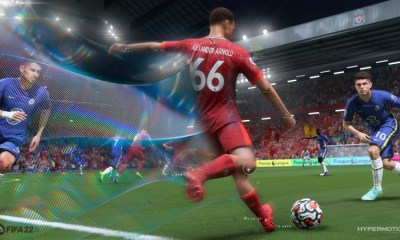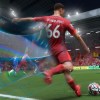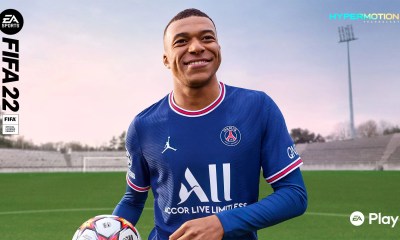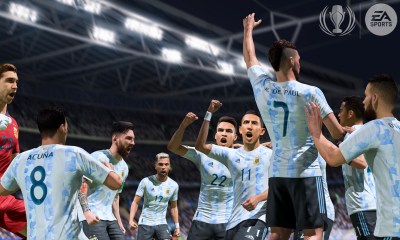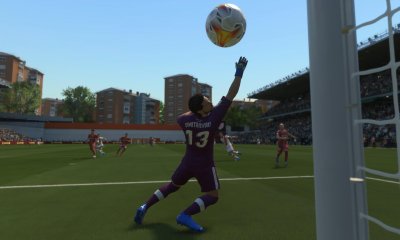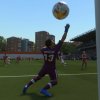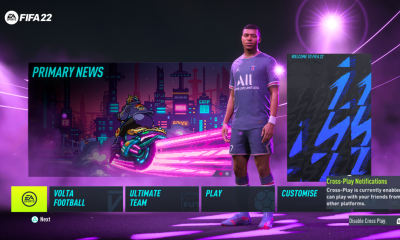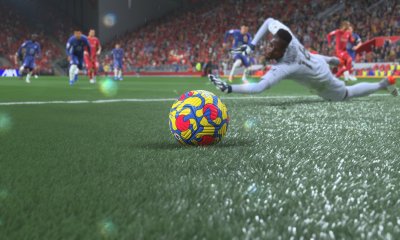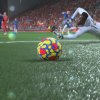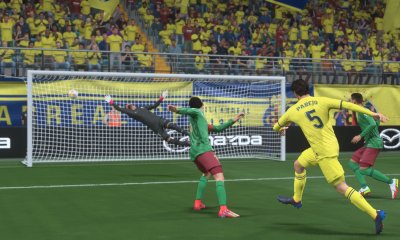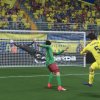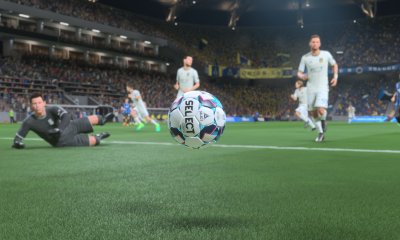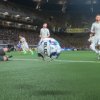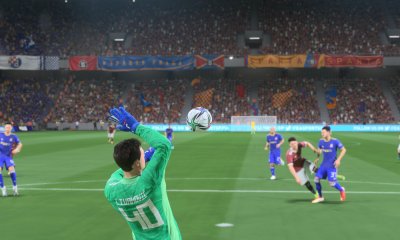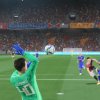FIFA 22
FIFA 22 - Gameplay Improvements Deep Dive (Part 1)
EA always seems to say exactly what we want to hear in the build to a new FIFA release. One thing’s for certain, when they say “Deep Dive” they come through with Olympic-level performances. There’s a lot to cover here, so for your sanity I’ll break this into two parts; Part one will primarily focus on attacking while part two touches on defending with some additional new features. One important note to mention before we get started is that some of these features are exclusive to next-gen consoles (sorry PC and PS4/Xbox One users). Just as EA noted in its blog, we’ll notate any of these next-gen specific features with the (NG) marking.
FIFA 22 Attacking Gameplay Deep Dive
HyperMotion, Machine Learning And ML-Flow
If you haven’t heard, HyperMotion is the backbone for which most of FIFA 22‘s improvements stem from. We’ve covered HyperMotion in great detail both here and here so let’s not devote too much digging into previously explained features. Instead, let’s focus on what’s new from EA in those most recent Pitch Notes.
Full Team Authentic Motion (NG)
Leveraging EA’s newest motion-capture technology Xsens suits and 11 vs. 11 capture, EA looks to be rolling out over 4,000 new animations to “help improve immersion by adding variety to the gameplay experience…” EA has always been strong in the animation department when it comes to the sheer number of animations. What they’ve struggled at is producing the right animation to fit the situation. This was most evident in shooting situations where body position and physics were taken for granted as the game allowed for unrealistic shots at the expense of scuffs and mishits:
In fairness to EA, shots like this aren’t always the result as there will be instances where they will instead look very realistic.
What we’re asking for from EA is consistency and that’s one thing EA is trying to address as pointed here by EA Gameplay Designer Adrian Novell.
Football is a complex sport. A lot of moving pieces and dynamics. Translating that into fun, trending, fresh, controllable yet realistic mechanics & gameplay is one of the toughest design challenges I’ve faced
— Adrián Novell (@adriannovell) July 29, 2021
Tactical AI (NG)
Attacking
Last year, EA instituted “Positional Personality” for both attacking and defending. The thought process behind this was to “put players in the right at the right time.” Forwards holding their runs with the last defender and playmakers finding space to play through balls were two noticeable areas in which FIFA 21 improved upon. All of these changes were brought forth with the idea that the “positioning” stat would be the key driver for how well or how poorly the players would perform. Apart from the sluggishness at which players would start play in FIFA 21, I thought the attacking side of the ball was fairly realistic. For FIFA 22 EA boasts that “attacking players can make up to 6 times more decisions per second” as EA’s “Machine Learning” comes into play. In what the gameplay footage I’ve seen so far the attacking side of things looks to be more lively and organic, perhaps utilizing the new tactics which we’ll talk about later on.
Defending
While attacking was generally decent in FIFA 21, defending was a nightmare and it was design decision by EA as opposed to a bug. We’ve documented the dreaded midfield issue numerous times, but it’s still worth repeating as it makes the game unplayable for a lot of folks. EA doesn’t specifically call this out as I believe it was a design choice aimed at pleasing the competitive crowd who don’t like assistance while defending, but there are some points in the latest Pitch Notes that seem to address this issue without specifically calling it out. First and foremost, defenders look to defend as a unit now as evidenced in this video:
As the ball is played towards the sidelines, the AC Milan midfielders move in unison with the wide players cutting off passing lanes. This aspect is well done, and it’s what I would expect from AI teammate defenders. Again, neither the competitive side nor the offline crowd want the game to allow your AI teammates to put in a tackle for you. We all simply want them to be in a position to allow us to switch to them to be able to put in a challenge. I truly believe that’s what both crowds want, and EA looks to have given us exactly that from the footage we’ve seen thus far. Now, how well your AI teammates do this should be left up to the stats and EA reiterates this:
“… the Defensive Awareness Attribute continues to be the most important in deterring the effectiveness of these behaviors.”
Tying positional awareness back to stats and work rate attributes is a good start as that’s what separates players and creates organic behaviors. However, once the ball advances past the midfield line and into the feet of Real’s Karim Benzema, the midfielders show absolutely no interest in dropping deeper and closing down from the backside:
It’s still early days for FIFA 22, but fragments of the main issue still appear in the brief clips we’ve seen so far. If EA is touting that teams defend as a unit, surely the developers should extend this philosophy to all parts of the pitch and not just the middle third. Perhaps there are tactical options implemented behind the scenes that have altered how the Milan players react in this clip, but if we’re going to ding Konami for showing eFootball in a poor way, we have to be consistent and point out the flaws in this video.
Competitive Settings/Master Switch
Last year EA rolled out a new gameplay setting called Competitor Mode. It was marketed as an attempt to give offline players and idea of what it was like to play against a competitive pro player. Instead, it seemed like a gentle nudge towards offline players in the hopes that it would encourage more offline players to jump online. It was a pretty big miscalculation by EA in my opinion as it misrepresents what real FIFA pro players play like. In addition, seeing the AI go from trick-to-trick in situations where the skill move was completely uncalled for was silly, and no one asked for this setting either.
Regardless, EA is back this year, fleshing out Competitive Mode even more with additional settings that can make this mode mandatory in some modes (FUT, Online Seasons, Co-Op Seasons, and Pro Clubs) and optional in others (exhibition, career mode, and so on). Of the mandatory modes in which this setting is turned on, I only really play Pro Clubs, but seeing the actual settings that are toggled “off” makes me happy in the sense that it turns off a lot of assists.
The list reads fine until you get to the end and you see that “Through Pass Assistance” is tuned to the “Semi” setting. I’m a bit perplexed by this as EA almost seems to say “fine we’re going to work towards creating a skill gap except for when it comes to the things that, you know, actually create a skill gap.” Look, I’m not the one that will tell you what settings you should play on, but I stand by my assertion that true competitive gaming (esports) should be played with no assists. Put everything back on the user’s skill, plus the ratings/attributes of the virtual athletes in use.
Deeper Match Analysis
The more stats the better. Fans of advanced stats such as Expected Goals (xG) can now see detailed stats for attacking, defending, passing, and possession — as well as the general match summary stats. Not only are these new stats rolled out for teams but they’re even extended to players. I love everything about this as most of the Twitter discussions you see around professional soccer tie back to advanced stats and fancy graphs when comparing players and managers. What will be interesting is to see whether or not this will carry over into career mode, and even more important, carry over from Year 1 to Year 2 and so forth.
Advanced stats are good. Advanced stat tracking over time is even better!
Kinetic Air Battles (NG)
Another area of the game that directly benefits from HyperMotion and the new way in which EA captured animations are air battles. EA touts a new “Kinetic Air Battle” that works to replicate what we see in real life where headers are a combination of awareness, aggression, technique, and ball physics. For years, I felt that none of these variables mattered as evidenced here:
If EA’s new motion-capture technology that captures actions in real-time with real variables, such as the weight/whip of the incoming ball, body position, and so on can lead to more realistic headers, then it will be a huge effort by EA as a march towards realism. Throw in some needed love to ball physics and the aerial game should be an organic and dynamic experience.
Explosive Sprint
“Explosive Sprint rewards timing and your intelligence on the ball, giving players a more noticeable acceleration when Sprint (R2/RT) is pressed during the correct context.”
EA’s description of this new attacking control is one I’ve seen put to good use by the AI in the few gameplay clips that have been made public. While the “right-flick” stick command has been a FIFA staple for years now, the ability to speed burst in unison was much harder at times due to response issues. Not having to rely on skill moves to beat defenders should offer a nice variation, one that players like Raheem Sterling and Lionel Messi utilize often. Slowing defenders down with a jog and then bursting by them as you use their body position against them is a far more common sight than chaining together tricks in professional soccer.
As with everything FIFA, balance is the key. In an effort to prevent this command from becoming OP’d, EA has shortened the duration for when the explosive sprint is active with a cool-down period to prevent unlimited bursts up and down the pitch.
Player Humanization (NG)
Any addition that can bring the game to life is a welcome one in my book. These “little things” help to make games like NBA 2K and MLB The Show such popular titles as the players exhibit emotion and react accordingly to situations presented to them. These new animations that don’t appear to affect actual gameplay are a much-needed injection of life. If you happened to watch a professional game during the early parts of last season when there were no crowds and/or fake crowd noise, you would hear the players and coaches communicating. This often accompanied gestures that were further highlighted due to the fact that the deafening crowd noises were absent.
Just because they are animated video game players doesn’t mean they have to be robots.
True Ball Physics
I mentioned this briefly above as it relates to the new Kinetic Air Battles, but improvement in the area pertaining to ball physics is a must for FIFA 22, and it seems like we’re getting just that. FIFA 21 and its predecessors suffered from horrendous, and at times, laughable ball physics:
Giving the ball more weight is one way to help tune ball physics to be more realistic. But the effect of having true ball physics extends to much of the game’s core gameplay, namely first touches, passing, and shooting where FIFA’s long-standing love for the shots ricocheting off the posts are a far too familiar sight.
New Attacking Tactics
This is one area of the game where EA has shown a strong commitment. Tactics in real life are constantly evolving. From Jose Mourinho’s counter-attacking style to Pep’s tiki taka Barcelona, tactics are constantly evolving and it seems as if EA has taken notice. For years, loyal offline FIFA players undertook tedious amounts of studying team tactics in order to assign them to clubs in the game. The goal behind efforts like these were to create different playing experiences to reflect the different tactical approaches taken by real-life clubs.
The old FIFA adage of “every team plays the same” was due in large part to the tactical limitations — with a large part also due to EA using similar setups for too many clubs. For FIFA 22, EA has tried to address these legacy issues by breaking down the attacking side of the ball into two parts: Build Up Play and Chance Creation:
Build-Up Play refers to when you have the ball in your own half and is comprised of four elements:
- Balanced: This tactic is used for a balanced team that maintains its formation while building up the attack. Players will support and make runs when they think it’s the right time to do so.
- Slow Build Up: Players will support more in attacking build up play, rather than a direct approach with lots of forward runs. This tactic emphasizes a short passing game with a slower build up.
- Long Ball: The team will make runs for long balls played into space behind the opposing back line, or up to a target man for a direct attack that skips the midfield. Strikers who are fast with a good attacking positioning attribute are the best at this tactic.
- Fast Build Up: This tactic pushes players forward for a faster build up, but if you lose possession of the ball, you could find yourself open to a counter attack.
Chance Creation refers to what happens when you advance the ball into your opponent’s half and is made up of these four elements:
- Balanced: This tactic is used for a balanced team that maintains its formation while building up the attack. Players will offer support and make runs when they think it’s the right time to do so.
- Possession: Players will provide more close support to the dribbler in the attacking zone, rather than going on forward runs. This tactic strengthens a short passing game to patiently wait for the chance to attack, but will rarely provide runs penetrating the opposing defensive line.
- Direct Passing: Once the team enters the attacking zone while in possession, players will create chances by making runs for passes into space behind the opposing back line. Strikers who are fast with a good attacking positioning Attribute are usually well suited for this tactic.
- Forward Runs: This tactic pushes players forward deep into attacking areas, but if you lose possession of the ball you could find yourself open to a counter attack.
There are 16 (4×4) different tactical combinations for us to both use and assign to AI teams, which means we should see more variety in gameplay as EA moves towards more realistic gameplay.
Composed Ball Control (NG)
Another new feature that directly benefits from HyperMotion and improved ball physics, Composed Ball Control brings new animations for players attempting to control the ball. More natural animations, including “longer two touch” traps, should result in more precise and accurate control. A good first touch is a skill that separates us weekend warriors from professional players, so seeing that EA has put some time and resources into this area of the game is encouraging.
Even more encouraging is reading about what affects composed ball control, namely attributes and player momentum (sprinting). The better the player attempting to control the ball plus the body position should make controlling the ball easier and more responsive. EA seems to understand that and is working towards making it impact our FIFA 22 experience. It’s just a shame that this will only be available for next-gen players.
Passing
At times, passing in FIFA 21 could be a frustrating experience. From the total disregard for physics and body position to the game not recognizing who your intended pass recipient was, FIFA 21 often had me unsettled as to which passing assistance level I played on. EA has taken this to heart with promises to improve the passing target selection and spatial awareness. Passing trajectory, particular on cross-field switches, looks much improved as balls are hit with more velocity and less lift. This means that they should get to their passing target with more pace, allowing that target to bring the pass down and possibly use some of the new Composed Ball Control animations mentioned above.
Passing isn’t just about the passer, it’s also about the receiver. Reading how EA has increased “Receiver Awareness” is a good sign, especially for those who play on manual passing where most of the complaints aren’t related to the direction and weight of the pass, but rather the pass receiving target that may not recognize that the pass was for them.
Shooting
There are few areas of FIFA that get patched as much as shooting, and it seems that every year we must relearn how to shoot in FIFA. Some years the ball has more weight to it while during others the traditional FIFA sweet spots reign supreme. However, there are some areas of shooting that should remain constant and EA addresses one of them here:
“Shots from difficult situations with the defender being close to the ball carrier have reduced conversion rate to correspond with the difficulty of the situation.”
In summary, you shouldn’t be banging in finesse shots from outside the box with a defender draped on you. That’s a hard skill to pull off in real life and one that should be equally as hard to do in FIFA 22. For now, it seems that shooting should be a more realistic experience in FIFA 22.
Dribbling
More attention to responsiveness seems to be at the top of EA’s list when it comes to dribbling. Quicker turns, “dink touches,” and the ability to ride tackles are the main improvements here. Of course, the aforementioned Explosive Sprint and RS flicks are added controls for those of us who like to get into those 1-on-1 situations out wide. All of these additions and updates sound good, but for those of us who enjoy career mode and such, the question still remains: “Will the AI utilize all of the dribbling tools at their disposal?”
Will guys like Neymar use their Player Personality to help differentiate the elite from other Ligue 1 players? So much of sports video games is centered around what we see on TV, but what’s the point if guys like Neymar — who has his latest hairstyle and tattoos — looks like himself but doesn’t actually play like himself? Dribbling and skill moves are obviously important to EA as the goals of the week found on the company Twitter account often feature crazy FIFA Street sorts of highlights.
But are they balanced and can you still achieve 1-on-1 success without having to rely on them? I guess we’ll find out soon.
Bottom Line
That puts a wrap on part one with EA touting several new enhancements for FIFA 22 in the attacking third. As always, it’s about balance, and in part two we’ll see if the new defensive features balance the footy scales.


